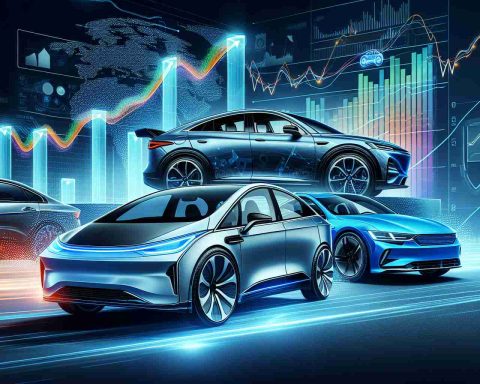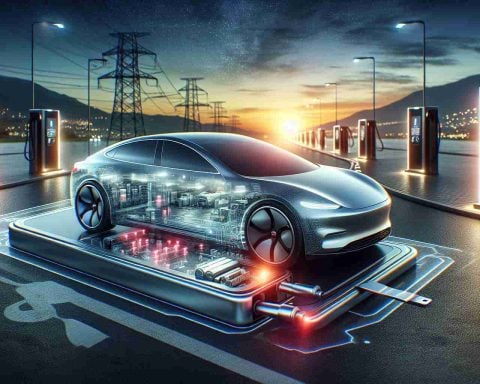The electrifying rise of electric vehicles (EVs) in Florida is impossible to ignore, particularly in the bustling regions of Southwest Florida. Recent studies from IHS Markit reveal that there has been a remarkable 30% surge in electric vehicle registrations in Collier and Lee counties compared to the previous year.
As demand skyrockets, Florida Power and Light (FPL) is stepping up to the plate. The energy giant is actively enhancing its network of EV charging stations to accommodate the growing number of electric cars on Florida roads. But what drives residents to choose electric over traditional vehicles? According to the U.S. Department of Energy, electric cars contribute to economic growth by reducing fuel dependency and supporting a diversified transportation fleet. While the up-front price of electric vehicles may be higher, the long-term savings on energy and the benefits of federal tax credits make them an appealing option for many.
Currently, the electric vehicle landscape in Naples and Fort Myers is thriving. Collier County boasts nearly 7,742 registered EVs, while Lee County counts over 9,245. In all, Florida has approximately 300,000 electric and hybrid vehicles on the roads, with over 244,000 being fully electric.
For those looking to charge, FPL has introduced several fast-charging stations across the area. Noteworthy locations include spots in Naples and Fort Myers, with FPL’s fast chargers capable of powering most electric vehicles in just 30 minutes. Tesla owners can also find multiple charging points near them, offering quick and efficient recharge options.
The Shocking Growth of Electric Vehicle Adoption in Florida: Trends and Insights
The Rise of Electric Vehicles in Florida
The surge of electric vehicles (EVs) in Florida, particularly in the vibrant areas of Southwest Florida, is transforming the automotive landscape. Recent data from IHS Markit indicates a 30% increase in electric vehicle registrations in Collier and Lee counties compared to the previous year. This remarkable growth underscores a broader trend as more Floridians opt for sustainable transportation options.
Understanding the Demand for Electric Vehicles
Several factors are driving the demand for electric vehicles in Florida. The U.S. Department of Energy highlights that electric cars not only lessen fuel dependency but also support a more robust and diversified transportation system. Moreover, the increasing awareness of environmental sustainability and the economic advantages stemming from reduced fuel costs are convincing more residents to make the switch.
Benefits of Electric Vehicles: Pros and Cons
Pros:
– Lower operating costs due to savings on fuel and maintenance.
– Federal tax credits and potential local incentives enhance affordability.
– Environmental benefits including reduced greenhouse gas emissions.
Cons:
– Higher initial purchase price compared to some traditional gas vehicles.
– Limited driving range compared to conventional vehicles, though this is improving.
Electric Vehicle Charging Infrastructure
To accommodate the rising influx of electric vehicles, Florida Power and Light (FPL) is ramping up its EV charging infrastructure. FPL has deployed fast-charging stations capable of recharging most electric cars in as little as 30 minutes. Key locations include Naples and Fort Myers, providing convenient access for EV owners. Tesla drivers, in particular, benefit from a network of charging points designed for swift recharges.
Current Statistics on Electric Vehicles in Florida
As of now, the electric vehicle scene is flourishing in Southwest Florida, with Collier County recording 7,742 registered EVs and Lee County tallying over 9,245. Across the state, there are about 300,000 electric and hybrid vehicles in total, with more than 244,000 being fully electric. This expansion reflects a significant shift in consumer preferences towards environmentally friendly vehicles.
Future Trends in Electric Vehicles
Looking ahead, several trends are poised to shape the future of electric vehicles in Florida:
– Increasing EV Adoption: Continued growth in registrations as consumers seek sustainable transportation options.
– Enhanced Charging Networks: Ongoing investments in EV charging infrastructure will accommodate more vehicles and reduce range anxiety.
– Technological Innovations: Advances in battery technology and energy efficiencies will further strengthen the appeal of electric vehicles.
– Market Predictions: Analysts expect electric vehicle sales to rise significantly, potentially making up a larger share of the automotive market in the coming years.
Conclusion
Florida’s electric vehicle revolution is not just a passing trend but a significant shift towards a more sustainable and economical transportation future. With continued improvements in charging infrastructure and growing awareness among consumers, the momentum for electric vehicles is expected to accelerate, paving the way for a cleaner and greener Florida.
For more updates on electric vehicle trends and details, visit FPL’s official website.

















